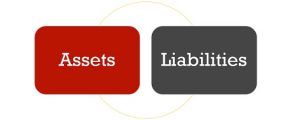 The primary function of the financial manager is to ensure availability of finance, to fulfill different purposes such as initial promotion, fixed capital, and working capital. Fixed Capital refers to the capital, which is invested in procuring fixed assets for business. On the other hand, working capital represents the amount of money utilized for financing day to day business operations. It is required to support the proper functioning of the company’s business operations.
The primary function of the financial manager is to ensure availability of finance, to fulfill different purposes such as initial promotion, fixed capital, and working capital. Fixed Capital refers to the capital, which is invested in procuring fixed assets for business. On the other hand, working capital represents the amount of money utilized for financing day to day business operations. It is required to support the proper functioning of the company’s business operations.
Fixed Capital and Working Capital are the two types of capital which mainly differs, on account of their usage in the business i.e. if it is utilized to serve long term requirements, they are terms as fixed capital, while if it serves short term requirements, it is called as working capital.
Taking a glance, in this article will help you understand the difference between fixed capital and working capital, in detail.
Content: Fixed Capital Vs Working Capital
Comparison Chart
| Basis for Comparison | Fixed Capital | Working Capital |
|---|---|---|
| Meaning | Fixed capital refers to the investment of the enterprise in long term assets of the company. | Working capital means the capital invested in the current assets of the company. |
| Comprise of | Durable goods whose useful life is more than one accounting period. | Short term assets and liabilities |
| Liquidity | Comparatively illiquid. | Highly liquid. |
| Uses | Used to buy non-current assets for business. | Used for short term financing. |
| Serves | Strategic objectives | Operational objectives |
Definition of Fixed Capital
Fixed Capital refers to the capital investment made in the long term assets of the company. It is a compulsory requirement of a firm during its initial stage, i.e. to commence a business or to conduct the existing business. It is that part of the total capital, which is not used for production but they are kept in business for more than one accounting year. Its nature is almost permanent which exist in the form of tangible and intangible assets of the company.
The need of fixed capital in any business depends on its nature, i.e. manufacturing entities, railways, telecommunication, infrastructure companies requires high fixed capital as compared to the companies conducting wholesale and retail business. It is used for business promotion, expansion, modernization and so on.
As the fixed capital is invested in purchasing non-current assets like plant & machinery, land & building, furniture & fixtures, vehicles, patents, goodwill, trademark, copyright, etc. of the company, hence depreciation is charged on such assets due to a reduction in their value over time.
Definition of Working Capital
Working Capital is the barometer that gauges financial soundness and operational efficiency of the company. It is the outcome of current assets less current liabilities, where current assets are those assets which can be converted into cash within one year, such as inventories, debtors, cash, etc. while current liabilities are the liabilities which falls due for payment within one year, i.e. creditors, tax provision, short term loans, bank overdraft, etc.
Working capital is used to finance day to day business operations. It determines the short-term solvency position of the company. It can be classified on the following basis:
- On the basis of time:
- Gross Working Capital: Investment made in the current assets of the firm.
- Net Working Capital: Deduction of current liabilities from current assets.
- On the basis of Concept:
- Permanent Working Capital: It represents the hardcore business capital, i.e. the least investment needed in the working capital of the firm.
- Temporary Working Capital: It is the fluctuating working capital. The working capital needed by the firm over and above the permanent or fixed working capital.
Key Differences Between Fixed Capital and Working Capital
The difference between fixed capital and working capital can be drawn clearly on the following grounds:
- Fixed capital is defined as the part of the total capital of the enterprise which is invested in long-term assets. Working Capital refers to the capital, which is used to perform day to day business operations.
- Fixed capital investments include durable goods, which will remain in the business for more than one accounting period. On the other hand, Working capital comprises of short-term assets and liabilities of the business.
- Fixed capital is relatively illiquid because it cannot be converted into cash easily. As opposed to working capital investments which are readily convertible into cash.
- Fixed capital is used to buy non-current assets for business, whereas Working capital is used for short-term financing.
- Fixed capital serves strategic objectives of the entity which includes long-term business plans. Unlike working capital, which serves
Conclusion
Capital is the basic requirement of the business entities for doing business. After considering the above points, it is quite clear that fixed capital and working capital, together known as total capital. They are not contradictory in nature, but they complement each other in a sense that working capital is needed to use the fixed assets of the business, i.e. there is no use of plant & machinery if the raw material is not used for production. So, working capital ensures the profitable use of fixed assets of the company.






mr_tuniee1 says
It was useful
Bodke OTB says
Nice
Sachin sharma says
Thanks
Mohamed Adel says
Good
Shyam says
Thank u for providing this information.
Debtor Finance says
Thanks for sharing the difference of Fixed Capital and Working Capital. This is a big help for me to understand it well. This is a very useful post. I’ll definitely return to this site.
CHIRANJEET SINGH says
Thanks for sharing the difference of fixed capital and working capital. This is a big help for me to understand it well. This is a very useful post. I’ll definitely return to this site .
NBF says
Thanks for sharing this article about the difference between fixed capital and working capital. This is very helpful for me to understand the difference between the two. I can use this details in order to manage my business finances well.
Alexious Nota says
Nice stuff